
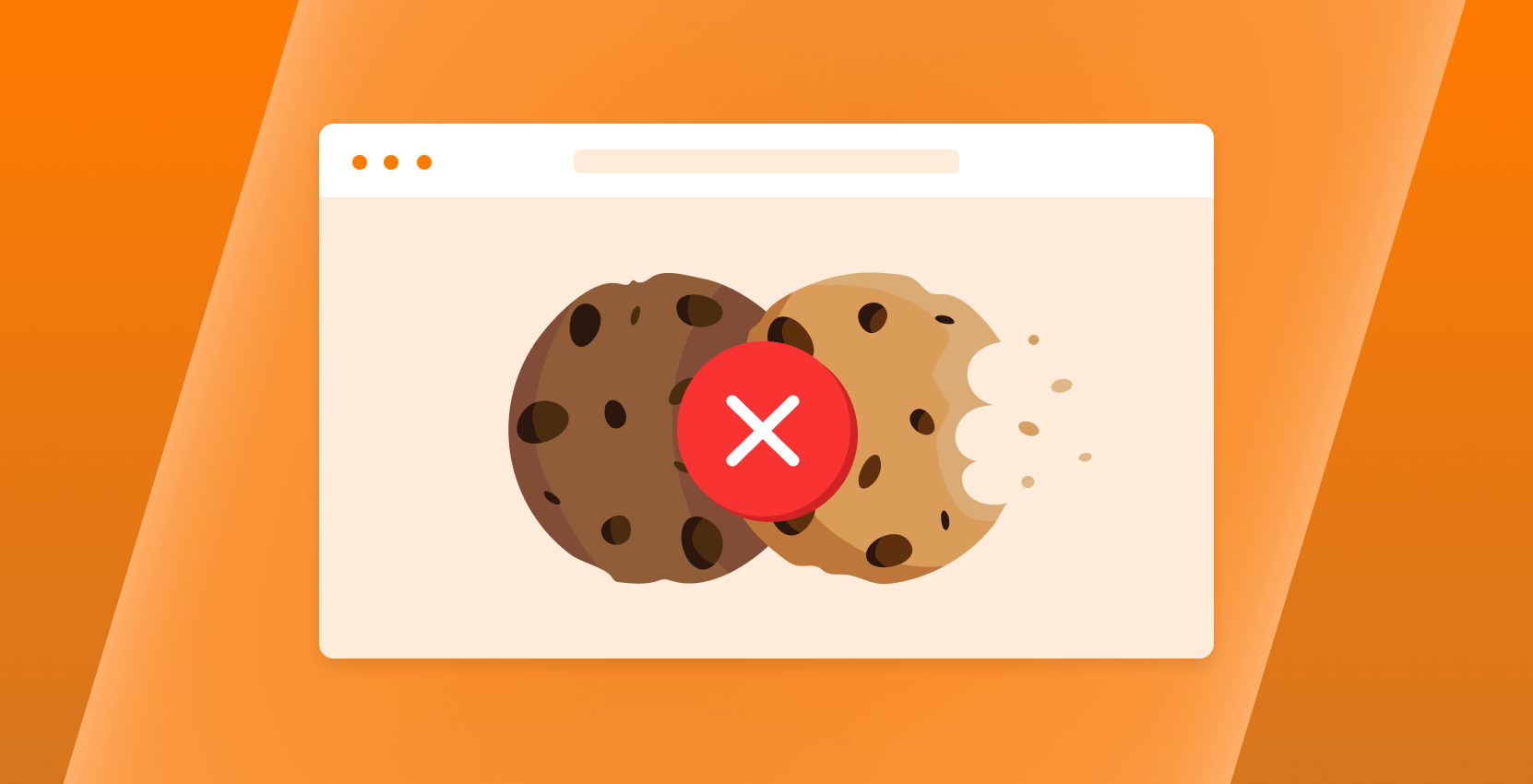
Third-party cookies gather information about consumers to ensure that everyone gets to see ads that resonate with their individual preferences. But with these personalised ads also come some privacy issues. Safari and FireFox have stopped supporting third-party cookies almost a decade ago, but now the biggest browser Google Chrome also enters the cookieless era. One of the most important regulations for advertisers is the prohibition of selling third-party cookie data. There is less data available about individual users and transparency regarding cookies is now mandatory, requiring user consent for their use.
The cookie challenge
Due to the regulations, the so-called walled gardens arose. Secluded platforms like Facebook and Google have a lot of customer information, yet the data connection cannot be made. This causes a major problem for marketers and advertisers, who lost access to about 80% of their data.
Normally, marketers use this data to make personalised and relevant ads, while advertisers use this information to learn more about their visiting customers. Now, marketers who rely on cookie data for their advertising need to find new approaches, and advertisers need to think about different ways to target and engage their audience.
Cape’s solutions
Cape offers the solution to create relevant ads despite the arising customer data challenges.
Contextual advertising
One effective solution to create relevant ads is through contextual advertising. This approach uses information from the receiver’s environment to make ads personalised and stand out. With Cape, it is possible to integrate factors like the time of day, specific locations, or other contextual data to create super relevant ads without using third-party cookies.
For example, a connected weather feed API can contain a list of cities with temperature or sun-hour forecasts that automatically integrate into ads. These ads can be easily published to DV360 or CM360 to create ads that update in real-time.
Essent uses this technology to display how much money their customers can save with solar panels based on the current weather conditions. When it is sunny in Rotterdam, people will see an ad that says ‘Save €20 with solar panels’, while no ad is shown in Amsterdam as the weather conditions are below the threshold. All done automatically!
Or look at Just Eat Takeaway.com, where they set up video ads based on factors like the weather, location, day of the week, and even time of day! This strategy enables them to display highly relevant ads, showing breakfast options in the morning, updating copy as quickly as the weather changes ('it's raining, we've got you covered for dinner!'), and promoting restaurants only within the audience's service area.
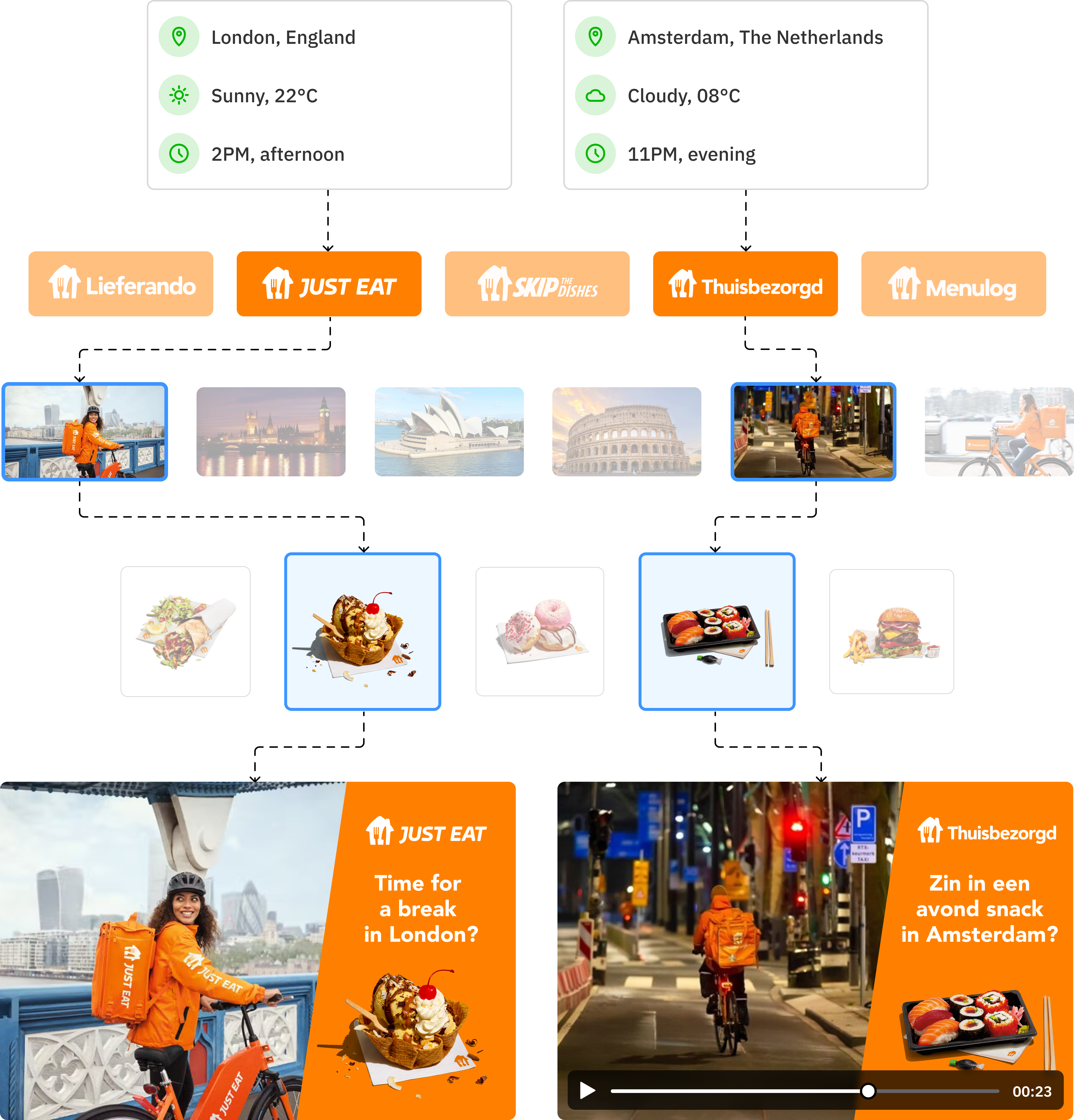
Another effective solution to create relevant ads is through retail media, or in other words, advertising on the website of retailers. Retail media can be described as a win-win-win-situation where the retailer gets an extra source of income, the advertiser gets to use first-party data and the customer gets to see relevant ads. With Cape, you can manage all campaign types, budgets, and creatives in one place, including budgeting, creatives, validation checks, and precise audience targeting for any chosen platform, complete with the necessary campaign setup and naming conventions.

Latest News
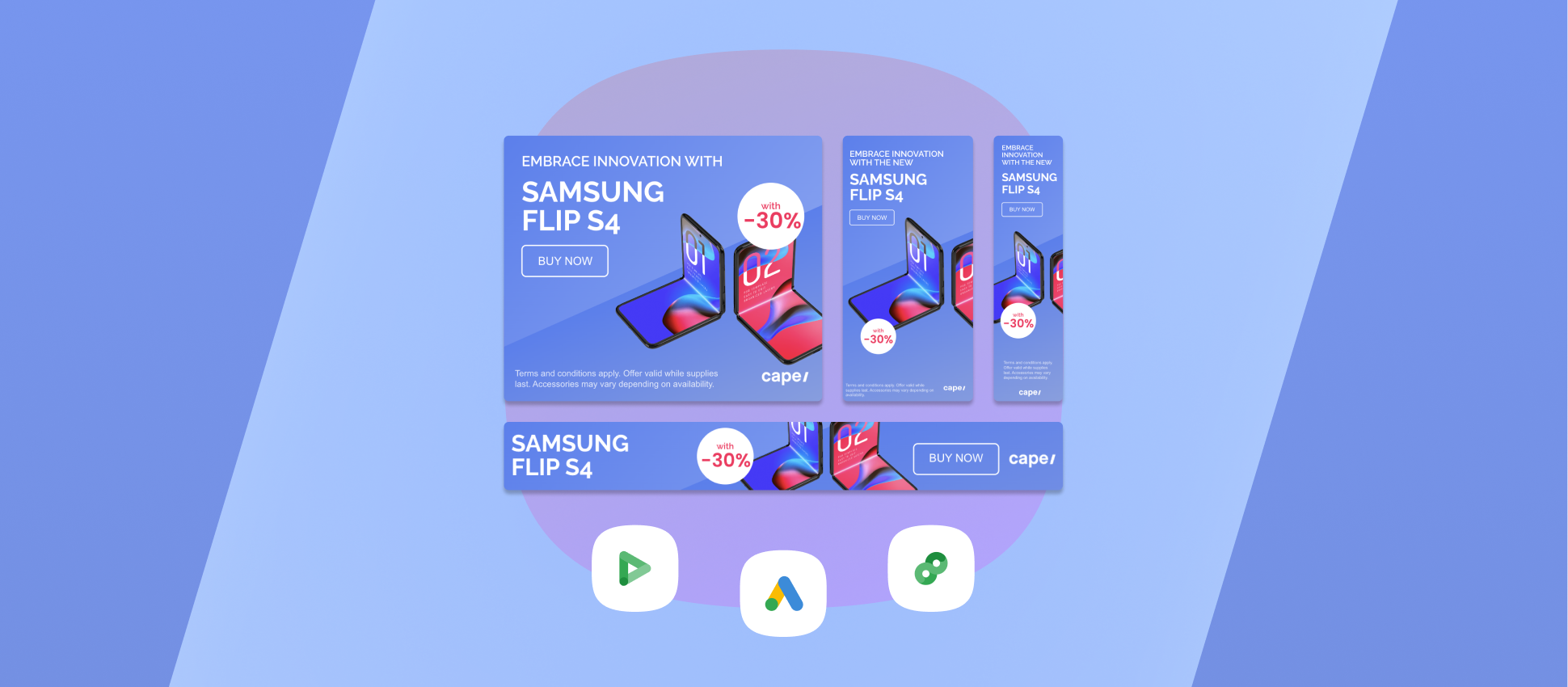
Blog
4 min read
21 October 2024
Revolutionising Display Advertising: How Automation Transforms Ad Creation
Display ads have long been a cornerstone of digital advertising, offering businesses a visually appealing way to engage with potential customers. However, not all display ads are created equal. In this blog, we’ll guide you through the challenges and solutions that come with display advertising!
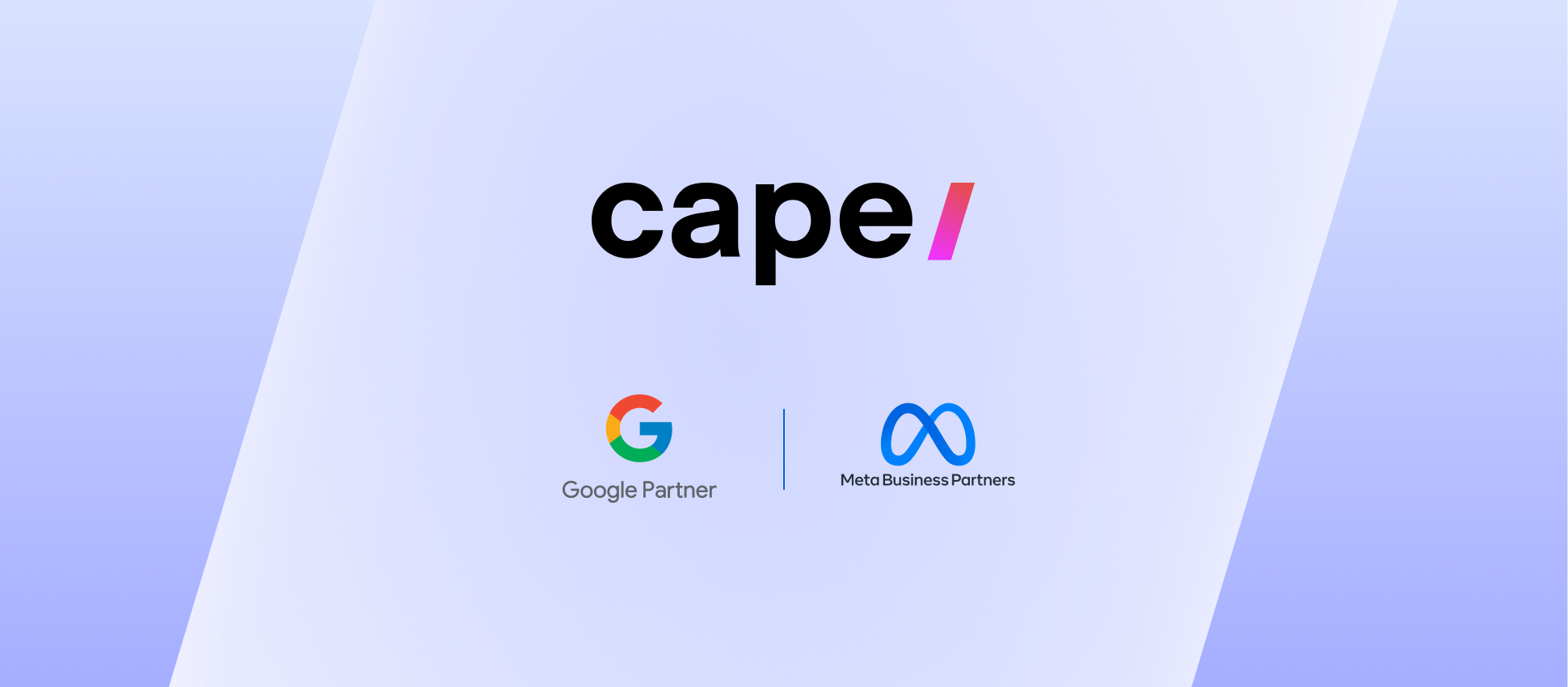
Blog
2 min read
08 October 2024
Cape’s Official Partnerships with Google & Meta: Elevating Your Campaigns
We’re excited to announce that Cape is an official partner of both Google and Meta. This marks a major milestone in our mission to deliver groundbreaking tech solutions to brands, advertisers, and agencies across the globe. These partnerships show our commitment to providing cutting-edge marketing tools and personalised support to help you reach your marketing goals.
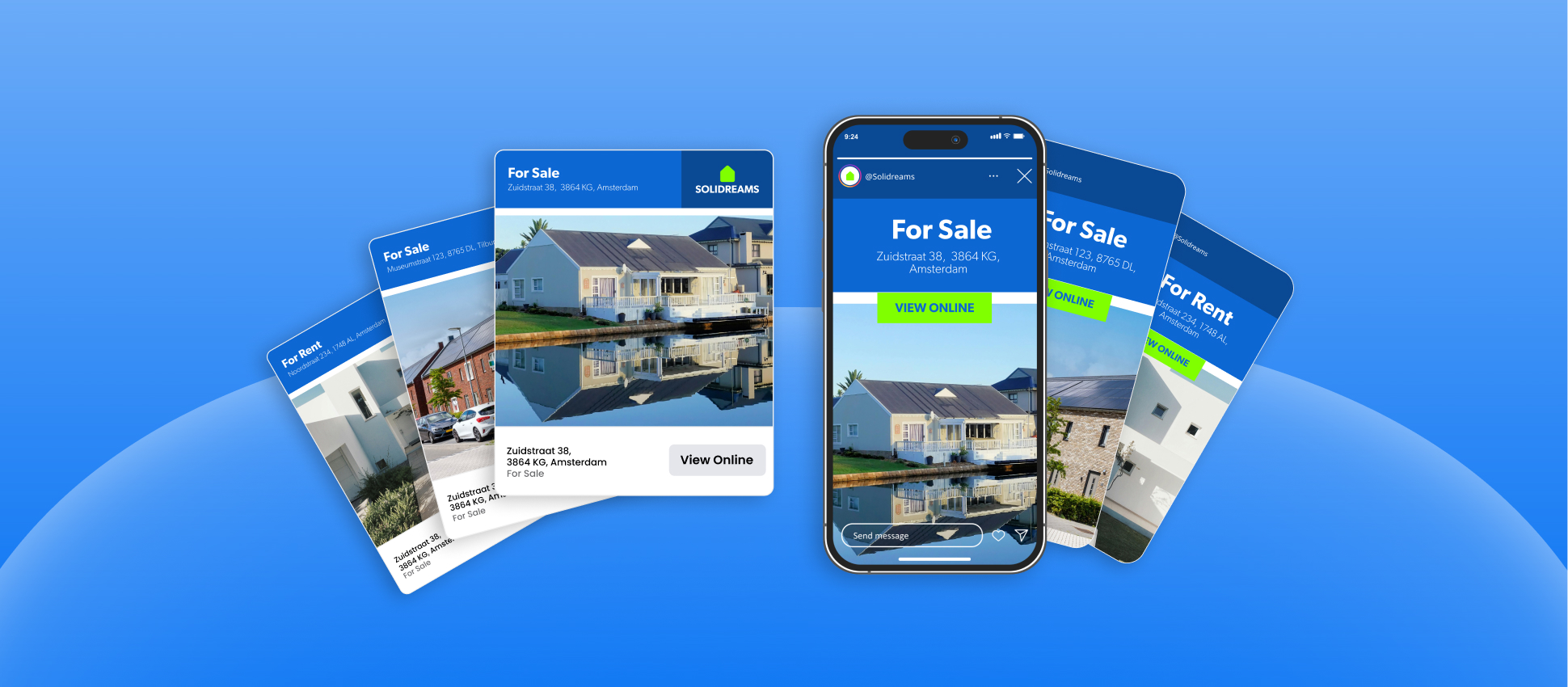
Products and features
2 min read
30 September 2024
Streamlining Campaigns: Automate Your Publishing
Inefficiencies in the campaigning process can lead to missed campaign opportunities and high agency or in-house costs. Often, a significant amount of time is dedicated to repetitive tasks, such as manually booking campaigns in the ad tech platforms.



